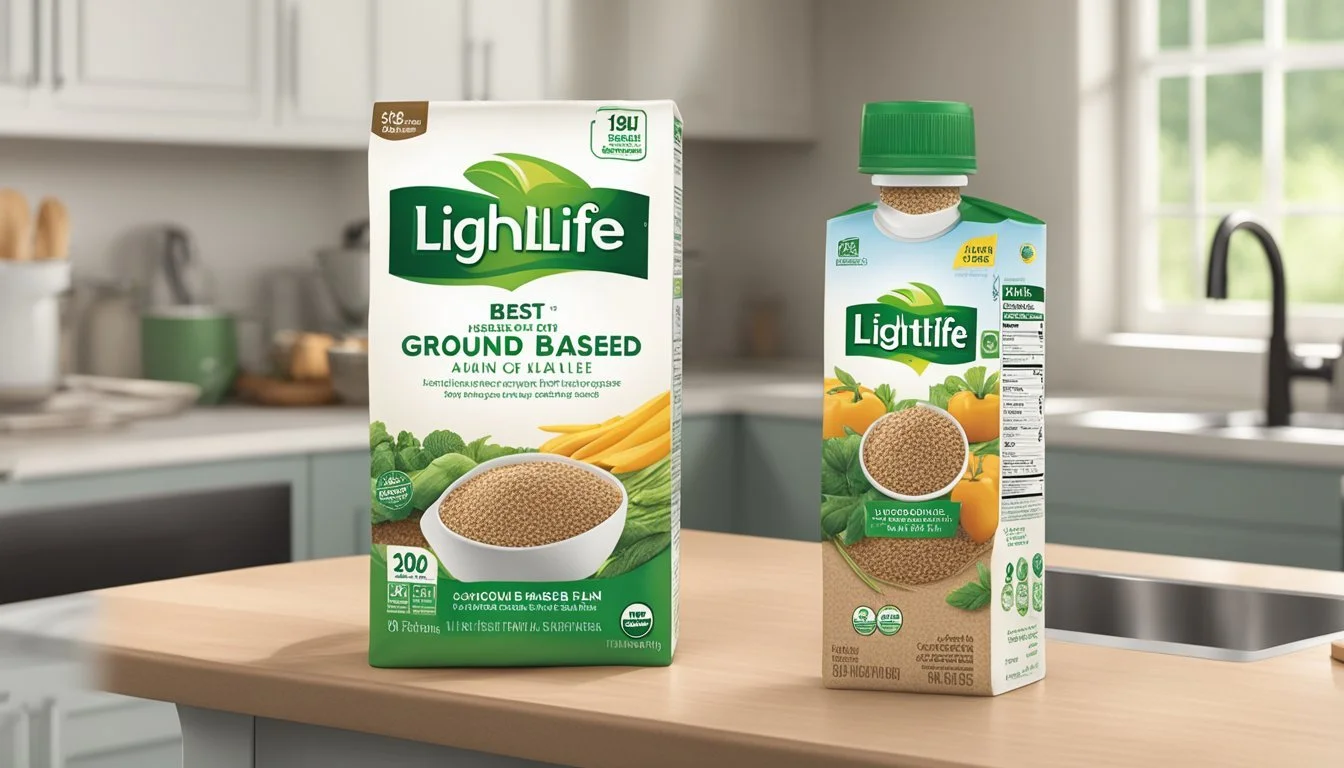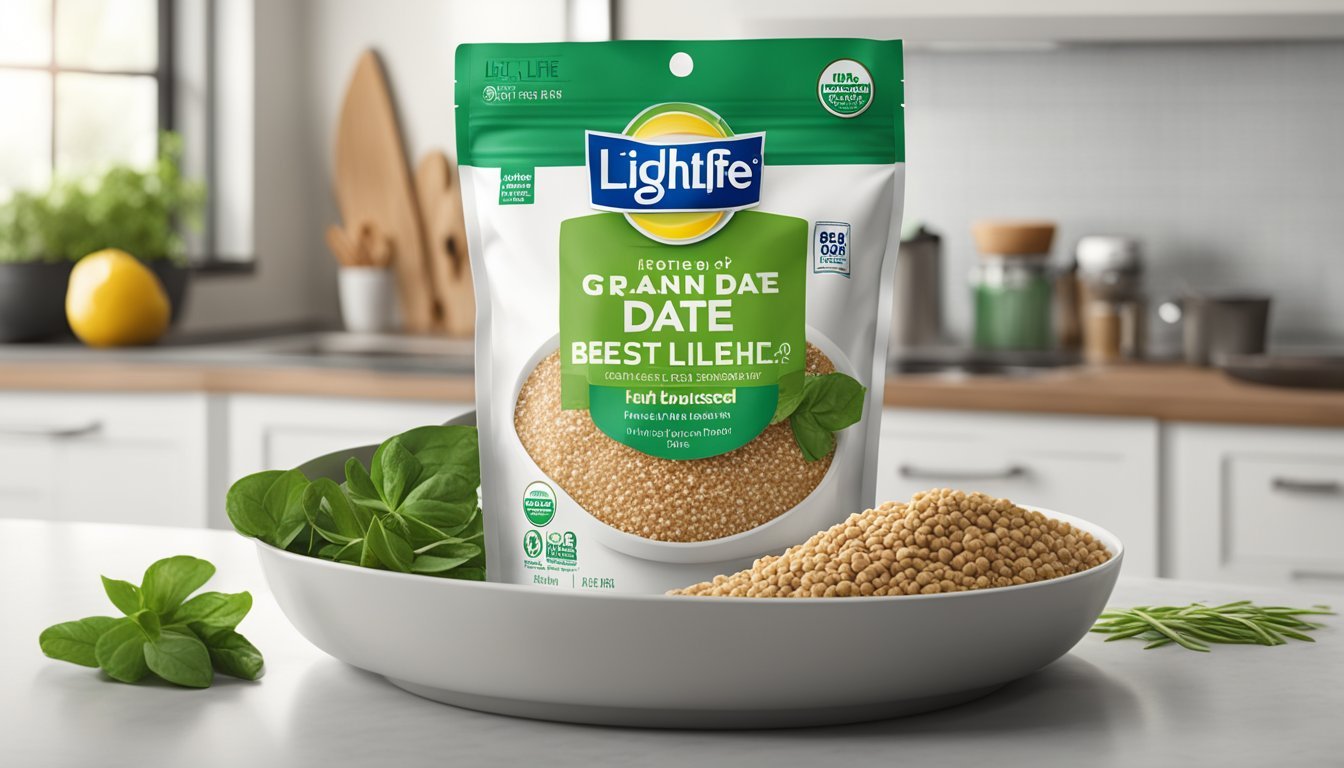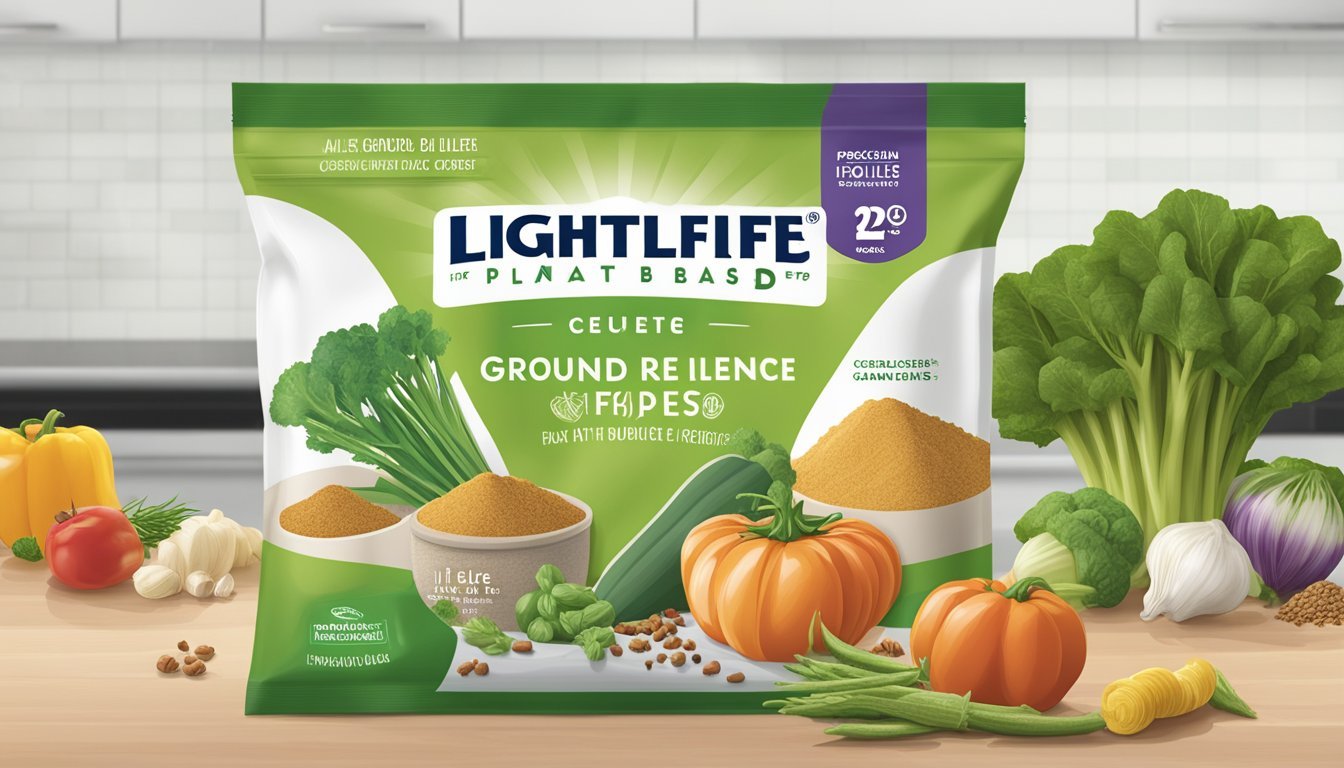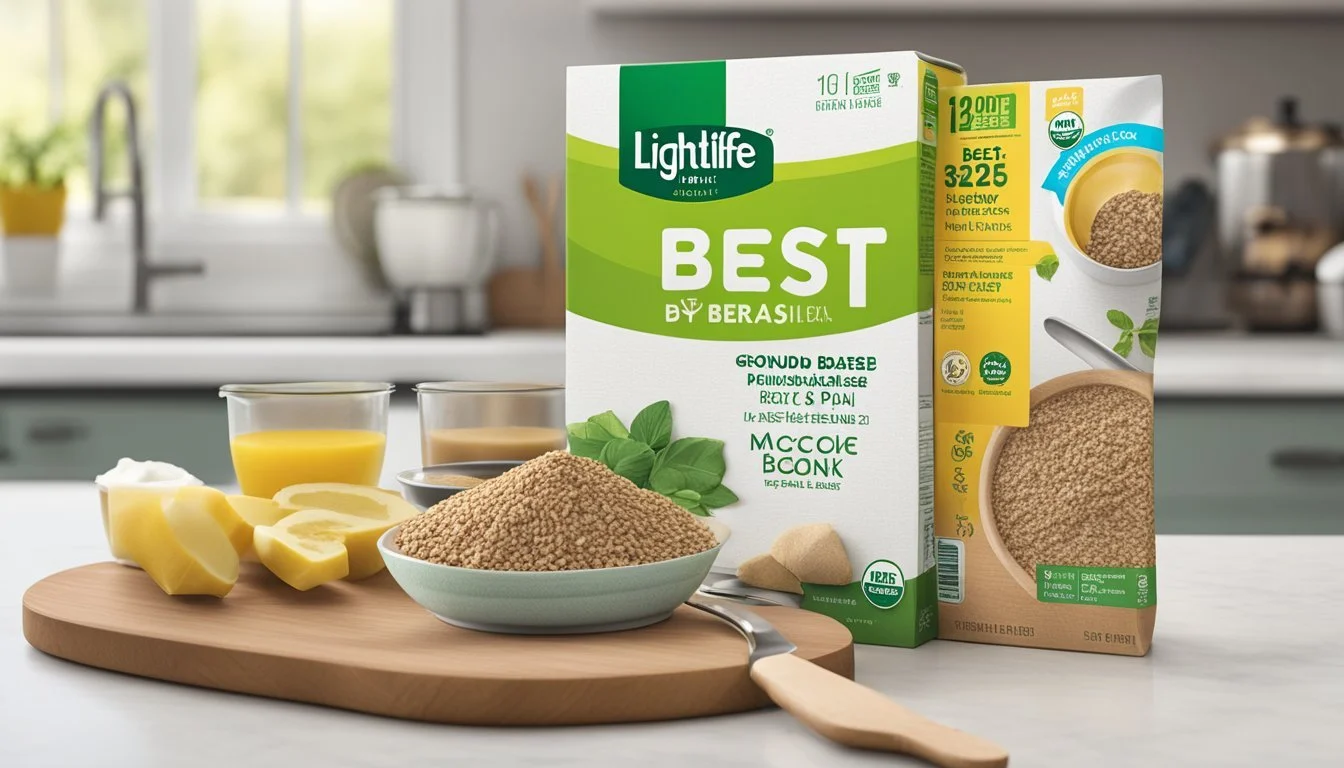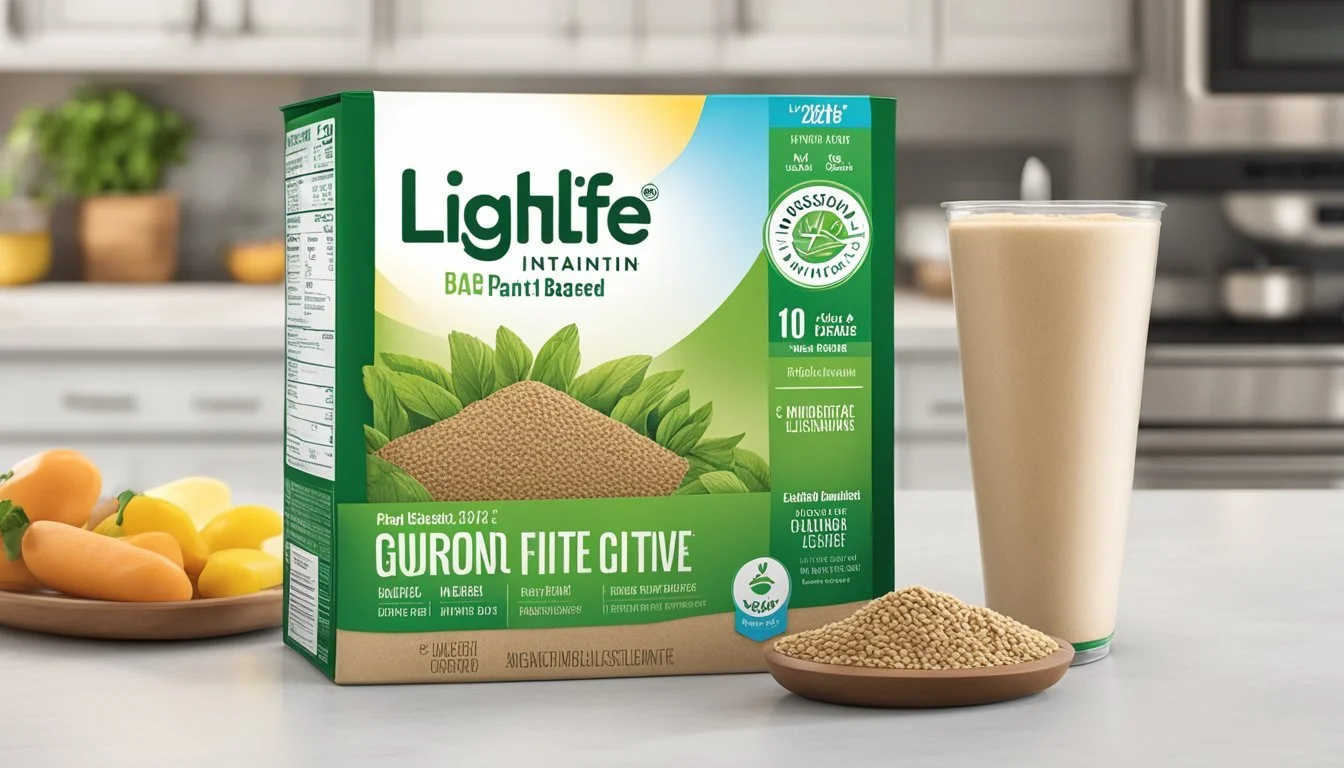How Long Does Lightlife Plant-Based Ground Last?
Shelf Life and Storage Tips
Lightlife Plant-Based Ground has become a popular meat alternative option for those looking to enjoy a plant-based diet without sacrificing the texture and versatility of ground meat. Its plant-based composition caters to versatile culinary uses, such as in tacos, lasagna, or chili. When it comes to its shelf life, an unopened package of Lightlife Plant-Based Ground can last in the fridge for a week to 10 days. However, like any perishable food product, the shelf life can vary depending on storage conditions and handling.
Once opened, the product's shelf life decreases and it is recommended to use it within a few days to maintain quality and safety. It's crucial for consumers to consult the product's packaging for the most accurate use-by date and to heed the storage instructions provided by the manufacturer to ensure the product remains fresh and safe to consume. Understanding the shelf life of plant-based meats like Lightlife can assist consumers in meal planning and reduce food waste, contributing to a more sustainable consumption pattern.
Understanding Lightlife Plant-Based Ground
Lightlife Plant-Based Ground offers a vegan meat alternative crafted from plant proteins aimed at mimicking the taste and texture of ground beef. This article explores the intricacies of Lightlife's product, considering elements such as ingredients, nutritional value, and food safety.
Composition and Ingredients
Lightlife's plant-based ground consists primarily of water, pea protein, oils (canola and coconut), and natural flavors. Its formulation also includes modified cellulose derived from plant fiber, sea salt, vinegar, and beet powder, contributing to its texture and flavor. This vegan meat alternative is free from common allergens such as peanuts and soy, positioning it as a suitable option for those with specific dietary restrictions.
Health and Nutritional Information
Lightlife's plant-based ground is designed to be a source of vegan protein, with additional ingredients like vitamin and mineral blends to enhance its nutritional profile. However, it is considered a processed food product and its healthiness is debated when compared to whole foods like beans, legumes, peas, and lentils. Nutrient-wise, pea protein contributes a high protein content, while the absence of GMOs and inclusion of beet powder and cane sugar attempt to offer a cleaner label to health-conscious consumers.
Brands and Alternatives
Beyond Lightlife, other major players in the plant-based meat sector include Beyond Meat, Impossible Foods, and Field Roast. These companies provide a variety of products such as plant-based burgers, sausages, and tempeh, with each brand utilising different bases like soy, legumes, and vegetables to replicate traditional meat textures and tastes.
Food Safety Standards
Lightlife, like all food products, is subject to stringent food safety regulations imposed by agencies like the FDA. Best practices for handling Lightlife's plant-based ground include adherence to proper temperature control to prevent the temperature danger zone where food-borne illnesses like salmonella might thrive. The product's packaging provides labels with food safety instructions, and the presence of preservatives like vinegar could aid in pasteurization and extending shelf-life, mitigating spoilage risks.
Comparing Plant-Based Alternatives
When comparing plant-based grounds like Lightlife to animal-based meat, there are discernible differences in terms of allergy advice, ingredient lists, and their environmental footprint. Vegan meat typically excludes common allergens found in animal products and frequently avoids GMOs. However, the taste and texture may vary, with companies like Lightlife using ingredients such as pea protein and coconut oil to emulate the experience of eating ground beef.
Environmental and Ethical Considerations
Choosing Lightlife's plant-based ground over traditional meat could have a positive impact on environmental sustainability. The production of plant-based proteins generally requires fewer resources, like water and land, and is associated with lower greenhouse gas emissions. Ethically, it presents an option for vegans, vegetarians, and those concerned with animal welfare, reducing reliance on animal agriculture.
Storage and Shelf-Life Guidelines
LightLife Plant-Based Ground requires proper storage to maintain freshness and ensure food safety. The reader should understand the optimal conditions for storage, the expected shelf-life duration, and how to identify spoilage.
Optimal Storage Conditions
One should store LightLife Plant-Based Ground in the refrigerator or freezer to preserve its quality. For fresh packets, they should be kept at a consistent temperature below 40°F (4°C) to avoid the temperature danger zone where harmful bacteria can grow. Frozen packets should be maintained at 0°F (-18°C) or lower.
Refrigerated: Keep sealed to prevent contamination and absorption of other food odors.
Freezer: Wrap the package in a heavy foil, plastic wrap, or freezer paper, or place inside a freezer bag.
Shelf Life Duration
The duration for which LightLife Plant-Based Ground remains suitable for consumption varies depending on its state:
Fresh (Refrigerator): Typically lasts until the use-by or best-by date on the package.
Frozen (Freezer): Can extend shelf life, but for optimal taste and texture, use within _
3 months_ from freezing.
Shelf life in detail:
Refrigerator: Sealed package up to the use-by date; once opened, consume within 3 to 7 days.
Freezer: Up to
3 monthsfor best quality; safe beyond that but may experience quality loss.
When thawing, shift the product to the refrigerator and use within 3 days.
Identifying Spoilage
Spoilage is noticeable through:
Odor: A sour or off smell not usual for the product.
Texture: Any slimy or excessively soft texture.
Color: Discoloration or mold growth signifies spoilage.
These signs indicate that the LightLife Plant-Based Ground has gone bad and should not be consumed. Always follow food safety guidelines and discard any product that shows signs of spoilage to prevent foodborne illness.
Preparation and Usage Tips
LightLife Plant-Based Ground offers a versatile and meat-like alternative for various dishes. Proper handling and cooking are essential for maintaining its quality and ensuring a delicious end product.
Handling and Cooking Instructions
To ensure optimal taste and safety, LightLife Plant-Based Ground should be handled with care. Always keep the product refrigerated until ready to use. If frozen, thaw in the refrigerator before cooking. Cook the Plant-Based Ground according to the package instructions to a minimum internal temperature of 165°F (74°C), which is essential for food safety.
Recommended Dishes and Recipes
LightLife Plant-Based Ground is suitable for traditional meat recipes, including tacos, lasagna, and chili. Its versatility means it can easily be substituted into most dishes where ground meat is typically used. When preparing recipes, one can consider using this plant-based ground as a direct replacement for animal-based proteins.
Texture and Flavor Enhancement
To enhance the texture and flavor of the Plant-Based Ground, consider seasoning it as you would with traditional meat. Adding spices such as garlic powder, onion powder, or your own taco seasoning blend can amplify its natural flavors. Cooking it in a skillet with a bit of olive oil can also enhance the texture, giving it a more meat-like appeal.
Food Pairings and Combinations
Pairing LightLife Plant-Based Ground with complementary ingredients such as rice, beans, lentils, and a variety of vegetables can create balanced and nutritious meals. The neutral taste of the plant-based ground makes it an excellent canvas for bold and rich flavors, tailor-made for a diverse array of culinary pairings.
Post-Thaw Usage and Safety
After the product has been thawed, it should not be refrozen as this can affect the texture and overall quality. Any leftovers should be stored in the refrigerator and consumed within a few days for food safety and to maintain freshness. Always follow refrigeration guidelines as indicated on the packaging for both raw and cooked plant-based ground.
Product Information and Consumer Concerns
When purchasing Lightlife Plant-Based Ground, consumers should be attentive to labeling details and expiration dates, and those with dietary restrictions require clear allergy advice. Lightlife offers customer service support to address any concerns regarding their products.
Labeling and Expiration Tracking
Lightlife labels their plant-based ground products with nutritional facts and cooking instructions. Consumers should look for best-by, use-by, or expiration dates on packaging to ensure freshness. To track these dates, one should store the packaging or note the date after purchase.
Allergy and Dietary Adjustments
Lightlife Plant-Based Ground is a vegan meat alternative, which caters to those avoiding animal products. The products are clearly labeled if they contain common allergens like soy, peanuts, or legumes. This transparency helps individuals make informed dietary choices and manage allergy concerns.
Customer Service and Support
Lightlife provides customer service to assist with inquiries related to product information, including labels and expiration tracking. They offer guidance on how to interpret best-by dates and use-by dates, and can provide allergy advice for their items. Customers can contact the support team for any product-related questions.
Advanced Topics and Further Research
This section explores the cutting-edge advancements and burgeoning studies surrounding plant-based meats such as Lightlife, with a focus on nutritional implications, market dynamics, and prospective developments in the field.
Innovations in Plant-Based Foods
Recent innovations in vegan meat production have spotlighted techniques like fermentation to improve texture and flavor. Studies are examining the role of modified cellulose from plant fiber in emulating the mouthfeel of traditional meat. These advancements aim to enhance the appeal of plant-based products while maintaining their vegan integrity.
Nutritional Studies and Health Impacts
Nutritional studies are crucial in assessing the health impacts of plant-based proteins like those found in Lightlife. Health experts analyze the nutritional information, comparing it against animal proteins and the implications for consumer health. Ongoing research seeks to fully understand the long-term effects of a diet high in vegan meat substitutes.
Market Trends and Future Outlook
The market for plant-based meats is evolving, with trends showing a growing consumer behavior shift towards flexitarian diets. A study of the future landscape predicts continued growth, fueled by innovation and an increasing cultural acceptance of plant-based burgers and similar products. Companies are strategizing to meet this demand while considering the ecological and health concerns of their consumers.
FAQs
How long does Lightlife plant-based ground last? Unopened, Lightlife plant-based ground typically lasts for 7 to 10 days in the fridge. Once opened, its shelf life may be reduced.
How should Lightlife plant-based ground be stored for maximum freshness? For best results:
Keep unopened in the refrigerator
If purchased frozen, thaw in the refrigerator
After opening, store in an airtight container, refrigerate, and use within a few days
Are there specific preparation instructions for Lightlife plant-based ground? Yes, Lightlife plant-based ground should be:
Cooked to a minimum internal temperature of 165°F
Evenly browned while cooking, usually for 3-4 minutes
Stirred frequently if cooking in a non-stick pan with a drizzle of oil
Can Lightlife plant-based ground be included in various recipes? Certainly, it is versatile and can be used in a variety of recipes that call for ground meat.
Is there any allergy advice concerning Lightlife plant-based ground? The product contains pea protein, an allergen for some individuals. Those with allergies should consider this information before consumption.
Does food safety concern differ from traditional meat? Yes, even though it is plant-based, proper food handling protocols should be followed to ensure safety. Always cook to the recommended temperature.

